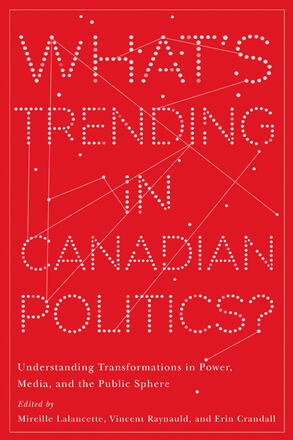
What’s Trending in Canadian Politics?
Understanding Transformations in Power, Media, and the Public Sphere
Description
What trends are shaping contemporary political communication and behaviour in Canada, and where are they heading? What’s Trending in Canadian Politics? examines political communication and democratic governance in a digital age. Exploring the effects of conventional and emerging political communication practices in Canada, contributors investigate the uses of digital media for political communication, grassroots-driven protest, public behaviour prediction, and relationships between members of civil society and the political establishment. Original and timely, this interdisciplinary volume lays robust theoretical and methodological foundations for the study of transformative trends in Canadian political communication.
Reviews
Observers of democratic politics are struggling to make sense of the rapid changes in political communication; What's Trending in Canadian Politics? offers many helpful insights into what's changing and why it matters.
- Harold Jansen, professor, Department of Political Science, University of Lethbridge
Scholars are still coming to terms with the transformative effects the internet and social media are having on politics, public policy, social activism, and public discourse in Canada, in part due to a paucity of empirical research. This volume goes a long way in advancing our knowledge of the seismic shifts taking place in political communication.
- Fred Fletcher, professor emeritus, Department of Politics, York University